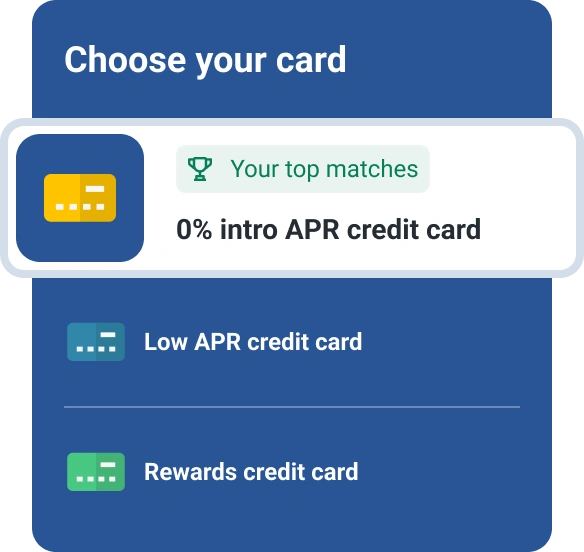How to Lower Your Credit Card Interest Rate
Quick Answer
It doesn’t hurt to ask your credit card issuer to lower your interest rate. These four steps can help you secure a lower rate:

You may be able to lower your credit card's interest rate simply by asking your card issuer. While card issuers aren't required to lower your rate, they may be willing to, especially if you have a long history of making on-time payments or if your creditworthiness has improved since you opened your account.
Even if you don't get approved for a permanent decrease right now, you could keep an eye out for promotional offers from your card issuer. These can lower your interest rate temporarily, which could help you pay off the balance and avoid interest altogether.
If you're looking to lower your credit card interest rate, try taking these steps.
1. Evaluate Your Situation
First, review your credit card's current interest rates, which you can find on a recent statement. There may be a different annual percentage rate (APR) for your purchases, balance transfers and cash advances.
Your finances and credit can be important factors in the credit card issuer's decision, but also consider whether there are any extenuating circumstances that could impact it: if you're unexpectedly unemployed, for example, or have experienced a medical emergency or other circumstances that create a financial hardship. Some credit card issuers have hardship plans that may temporarily lower your APR or minimum payments.
2. Build Your Credit
Because your credit score can be a factor in interest rate decisions, improving your credit before asking could be helpful. You can check your credit score for free with Experian, and you'll see which factors are most impacting your credit score.
The impact of negative marks, such as a late payment, will naturally diminish over time. And making all payments on time going forward will help build your positive credit history. Additionally, try to focus on paying down credit card balances. It can be difficult, especially if you have a high interest rate, but it's one of the few ways you could quickly improve your credit scores.
3. See What Other Cards Offer
If you want some negotiating leverage for when you contact your card issuer, you could also see what other credit cards are charging. There's generally an interest rate range, and you won't necessarily know what rate you'd receive from another card issuer. But if the high end of the range is lower than your current rate, that's telling you that a different card might save you money.
Also check offers that you receive in the mail or by email, and look into your personalized offers using Experian's card comparison tool. Sometimes smaller community banks and credit unions also offer low-rate cards, although they might not have many rewards.
4. Contact Your Card Issuer
Once you feel ready, you can call your card issuer's customer service number (it should be on your card) and ask about reducing your card's interest rate. Here are some tips you can use and suggestions for when you don't get a yes.
- Explain your situation. Briefly explain your history with the card and if you've made lots of on-time payments. Ask for the interest rate decrease, and share why you think you deserve or need one: credit score improvements, offers you're receiving for cards at lower rates, financial hardships or other circumstances.
- Ask for a supervisor. If the first person you talk to can't help, ask to speak with a manager or supervisor who may have more authority. Be polite but firm and persistent. Negotiating your interest rate is a perfectly reasonable thing to do.
- Ask for a temporary change. If the supervisor doesn't offer a permanent reduction, see if they'd be willing to temporarily lower your rate or offer some type of hardship option.
How to Avoid Credit Card Interest
Regardless of your card's interest rate, it's best to avoid paying interest altogether. While it can be hard to avoid taking on debt if you need to use a credit card for emergency expenses, there are some ways to avoid paying interest on everyday purchases.
- Treat your credit card like a debit card. Only use your credit card for a purchase that you can already afford to pay for in full. Then, mentally set that money aside for the upcoming credit card bill or even pay the purchase off right away.
- Pay the balance in full every month. You won't pay interest on your purchases if you pay your credit card bill's entire statement balance every month.
- Don't use your card for cash-like purchases. Cash advances may start accruing interest immediately, sometimes at a higher rate than purchases. Plus, there may be a cash advance fee. Watch out for additional cash-like purchases, such as money transfers, which may be treated as a cash advance.
- Look for promotional 0% APR offers. You may be able to get a promotional 0% APR or a reduced APR on your card temporarily. Another option is to open a new card that has a promo rate for purchases or balance transfers. Use these offers to pay off a balance over time without paying interest—but also make sure you're paying enough each month that the balance will be gone by the end of the promotional period.
Monitor Your Credit
Your credit score can impact your options with your current cards, as well as your ability to qualify for new credit cards and the interest rates and credit limits you receive. Experian gives you free credit monitoring with alerts for unusual changes and insights into what's impacting your credit scores. Keeping an eye on your credit is a good way to know when you might be able to request better terms from your creditors, or if you might qualify for a new balance transfer credit card or debt consolidation loan that could help you save money.
Don’t apply blindly
Apply for credit cards confidently with personalized offers based on your credit profile. Get started with your FICO® Score for free.
See your offersAbout the author
Louis DeNicola is freelance personal finance and credit writer who works with Fortune 500 financial services firms, FinTech startups, and non-profits to teach people about money and credit. His clients include BlueVine, Discover, LendingTree, Money Management International, U.S News and Wirecutter.
Read more from Louis

